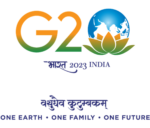Shaheed Bhagat Singh College, University of Delhi Organises
INTERNATIONAL G20 CONFERENCE
‘Resilient Approaches for New World Order'
Message from the Vice Chancellor Prof Yogesh Singh SBSC G20 Conference
G20 Conference Live
ABOUT THE CONFERENCE
In the post-pandemic global scenario, with India’s intrinsic strength that is aiding her emerging role as the global leader, India, with her G20 presidency this year, is standing at the crossroads with respect to pertinent decisions regarding herself and the world. The G20 presidency offers a valuable opportunity for India to apprehend and anticipate the multilateral impetus to decisions that will have far-reaching consequences, giving a new direction to the existing world order. Hence, the time is ripe for serious deliberations by different stakeholders on various facets of our shared existence and the possibility of ushering into a new and holistic world order.
Shaheed Bhagat Singh College (University of Delhi) takes this opportunity to invite papers for presentations on topics related to G20 in an international conference on ‘Resilient Approaches for New World Order’. We encourage participants from across countries to bring forth their peerless approaches to momentous issues of our times and discuss resilient, innovative, and practical strategies for dealing with them. There is an urgent need for discussion about the dilemmas that a country and her people face in the current times with respect to various aspects of their ecosystem. We need to understand why some of the issues have not garnered the attention that they deserve. The world is undergoing tremendous changes and we need to understand the future world order that could better align with our goals. We need to envision resilient methods that we can adopt for Vasudhaiva Kutumbakam or One Earth, One Family, One Future encapsulating India’s vision to foster international cooperation, focusing on inclusive growth, digital transformation, and climate action for a brighter future for all.
We, as a constituent College of the University of Delhi, feel strongly about the urgent importance of holding serious deliberations on and engaging critically with issues concerning G20.

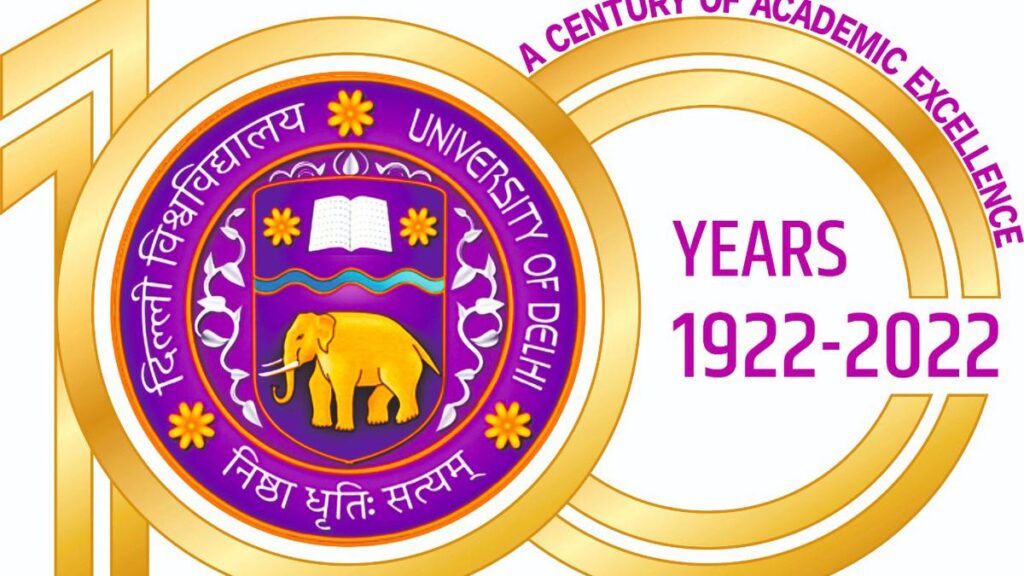
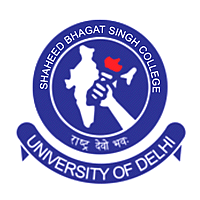
About University of Delhi
The University of Delhi is a premier university of the country with a venerable legacy and international acclaim for highest academic standards, diverse educational programmes, distinguished faculty, illustrious alumni, varied co-curricular activities and modern infrastructure. Over the many years of its existence, the University has sustained the highest global standards and best practices in higher education. Its long-term commitment to nation building and unflinching adherence to universal human values are reflected in its motto: ‘Nishtha Dhriti Satyam’ ‘नि ष्ठा धृति सत्यम्’ (Dedication, Steadfastness and Truth). Established in 1922 as a unitary, teaching and residential University by the Act of the then Central Legislative Assembly, a strong commitment to excellence in teaching, research and social outreach has made the University a role-model and trend setter for other universities. The President of India is the Visitor, the Vice-President is the Chancellor and the Chief Justice of the Supreme Court of India is the Pro-Chancellor of the University. Beginning with three colleges and 750 students, it has grown as one of the largest universities in India with 16 faculties, over 80 academic departments, an equal number of colleges and over seven lakh students. Over 500 programmes offered by the University are approved by Academic and Executive Councils, out of which 209 programmes are being considered for NAAC
accreditation purposes. The rest being run in colleges are separately accredited.
About Shaheed Bhagat Singh College
Shaheed Bhagat Singh College, named after the great son of India, Shaheed-e-Azam, Sardar Bhagat Singh, was established as a co-educational college in 1967 as a constituent college of University of Delhi. It acquired postgraduate status in a record time of 7 years. The College takes pride in celebrating its Golden Jubilee Year in 2016-17. Over a period of 50 years, the college has distinguished itself in diverse academic and professional fields by providing a vibrant and intellectually stimulating academic culture, to promote independence of thought and vision. The college is equipped with a fully computerized Library with state of the art facilities to upgrade knowledge, skills and capabilities needed for the complex business environment of the 21st century. Besides, the college has adequate infrastructure including Computer Labs, a big Sports Ground with a cricket pitch, volley-ball court, basket-ball court, etc. The college is proud of its well-known alumni who have contributed meaningfully in diverse fields of business, culture and society at large
KEYNOTE SPEAKERS

CHRISTOPH SCHERRER
Christoph Scherrer is a Professor at the University of Kassel, specializing in "Globalization & Politics." He has taught at the J. F. Kennedy Institute, Rutgers University, and Harvard University. He is a spokesperson for the International Center for Development and Decent Work for Excellence in Development Cooperation. His research interests include International Political Economy, particularly social and environmental sustainability governance.
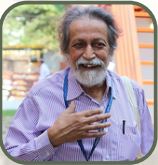
PRABHAT PATNAIK
Prabhat Patnaik is one of India’s most eminent economists. He had taught at Cambridge University, UK from 1969 to 1974. He was the Sukhamoy Chakravarty Chair Professor of Economics at the Centre for Economic Studies and Planning, Jawaharlal Nehru University in New Delhi, from 1974 until his retirement in 2010. He was the vice-chairman of Kerala State Planning Board from June 2006 to May 2011. He was the member of the high-power task force of the United Nations for reform measures for global financial systems. He is the author of several books, including Macroeconomics, Economics and Egalitarianism, The Value of Money and Re-envisioning Socialism.
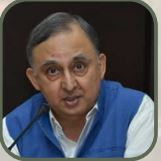
TILAK DEVASHER
Tilak Devasher retired as Special Secretary, Cabinet Secretariat, Government of India in October 2014. Currently, he is a Member of National Security Advisory Board (NSAB), Consultant, Vivekananda International Foundation, Emeritus Resource Faculty at Rashtriya Raksha University and Distinguished Fellow, United Services Institution of India. His expertise lies in security issues, particularly concerning India's neighboring countries, especially Pakistan.
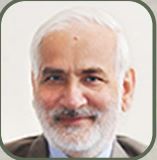
S.D. MUNI
S.D. Muni is a member of IDSA's Executive Council and has over forty years of experience in International Relations and South Asian Studies. He served as India's Special Envoy to SE Asian countries, represented India at the Paris Peace Conference, and was nominated to the first National Security Advisory Board. A founding executive member of the Regional Centre of Strategic Studies, Sri Lanka. He was awarded the 'Sri Lanka Ratna' in 2005.

HARSH V. PANT
Harsh V. Pant is a Professor of International Relations with King’s India Institute at King’s College London. He is Vice President of Studies and Foreign Policy at Observer Research Foundation, and Director (Honorary) of Delhi School of Transnational Affairs at Delhi University. He holds visiting positions at various institutions, including the Indian Institute of Management, University of Pennsylvania, McGill University, and Banaras Hindu University. His research focuses on Asian security issues, and he regularly writes for various media outlets.
SESSION CHAIRS

Prof. Amit Kumar Singh
Department of Commerce, University of Delhi

Prof. Madan Lal
Department of Commerce, University of Delhi
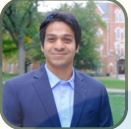
Dr. Jeevant Rampal
Associate Professor, IIM Ahmedabad
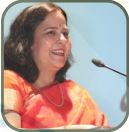
Anjali Makhija
Trustee and CEO, Sehgal Foundation
SUB-THEMES FOR PAPER SUBMISSION
- Volatility in global food prices and zero hunger
- Inclusive, sustainable, socio-economic, job-rich growth, recovery and development
- Harnessing the digital potential of economies
- Ways to mitigate and adapt to climate change-induced disaster risk
- Skill development and school-to-work transition
- Energy security, accessibility, and affordability
- Preparedness of health systems for health emergencies
- Resilient and sustainable tourism
- Global Partnership for financial inclusion and strengthening international financial architecture
- Pandemic prevention, preparedness, and response (PPR)
- Tax challenges arising from the digitalization of the economy
- Business 20 strategic vision and synergies between start-ups and other ecosystem stakeholders
- Non-government and non-business voice to G20
- Labour-related issues
- Governance and parliamentarians
- Consensus-based science, literature, art, and cinema
- Transparency, accountability, and anti-corruption issues
- Role of cities in sustainable development
- Gender-inclusive economic growth
- Youth and G20 priorities
- Shared cultures and histories
- Diaspora and common values
- Marginality, diversity and intersectionality
ABSTRACT SUBMISSION DETAILS
- The abstract should not exceed 300 words.
- The abstract file should be in PDF format only.
- Mention your name, current affiliation, and working email address of the corresponding author along with details of all the authors/contributors.
- Link to upload Abstracts: https://forms.gle/R6yAL2nSiVzkH4on9 For abstract submission, no need to register or pay registration fees.
GUIDELINES FOR ABSTRACT AND FULL PAPER SUBMISSION
- The paper must be accompanied by a cover page which should include the title of the paper, name(s) of the author(s) and their affiliations, country of residence, and the complete postal and email addresses and telephone numbers of the authors.
- The complete manuscript should be a Word document in Times New Roman, 12- point font size with 1.5 line spacing, 1-inch margins, and follow APA-7 style of referencing.
- The word limit for the research paper is a maximum of 6000 words including references.
- Authors should only send their original works as the College has a zero-tolerance policy on plagiarism.
PUBLICATION OPPORTUNITY
The Conference committee comprising subject experts will shortlist the papers for presentation. Out of the presented papers, only selected papers will be published in an edited volume by a reputed publisher. The title and the publisher of the volume will be announced in due course.
REWARDS
The best three papers will be rewarded.
REGISTRATION
Registration Link: https://forms.gle/K2NHi2GPX5bKFCzw5
NOTE:
- Last date of registration for participants, other than paper presenters: 22 September 2023
- Last date of registration for selected paper-presenters: 15th September 2023
- For submission of abstracts, no need to register or pay registration fees.
Abstract submission deadline : 16 August 2023 Confirmation of abstract selection : 20 August 2023
Full papers submission deadline : 15 September 2023
Date of the Conference: 25 September 2023
Registration Link: https://forms.gle/K2NHi2GPX5bKFCzw5
NOTE:
- Last date of registration for participants, other than paper presenters: 22 September 2023
- Last date of registration for selected paper-presenters: 15th September 2023
- For submission of abstracts, no need to register or pay registration fees.
Payment link: https://paytm.me/f-435VP
Paper Presenters/ Participants | Faculty/ Academicians | Research Scholars | Industry Representatives | Students |
Indian | Rs. 500 | Rs. 250 | Rs. 1000 | Rs. 100 |
Foreign | $ 100 | $ 50 | $ 150 | $ 25 * |
*For alumni of the College studying/working abroad, no registration fee is required for participation/ paper presentation. However, they need to register. Note: Registration fee does not include accommodation and travel concession.
Dr. Ambedkar International Centre
15, Janpath Rd, Windsor Place,
New Delhi, Delhi 110001
Telephone Number: 011 2347 7479
CONFERENCE ORGANISING COMMITTEE
- Chief Patron - Prof. Arun Kumar Attree, Principal
- Director - Dr. Jai Ram Meena
- Secretary - Ms. Pallavi Manchanda
CONFERENCE ORGANISING COMMITTEE
- Dr. V. A. V. Raman
- Ms. Mita Hussain
- Mr. Arun Kr. Kaushal
- Dr. Shalini Gupta
- Dr. Hemant Kr. Himanshu
- Dr. Rajeev Ranjan Sinha
- Dr. Pooja Raj Verma
- Dr. Raj Kumar Rajan
- Dr. Komal Agarwal
DEPARTMENTAL COORDINATORS
- Dr. Vandana Dahiya
- Prof. Dinesh Ram
- Ms. Garima Yadav
- Dr. K Krishnadas
- Dr. Saima Iqbal
- Dr. Neyati Ahuja
- Mr. Pankaj Yadav
- Mr. Shubh Sejwar
- Mr. Ashish Singh
- Mr. Naman Jain
- Dr. Saumya Verma
- Dr. Amit Kr. Sharma
- Dr. Pragya Nayyar
- Mr. Anuj Goyal
- Ms. Mamta
- Ms. Priyanka Singh
- Dr. Nahid Parveen
- Ms. Jaspreet Kaur
- Mr. Deepanshu Yadav
- Ms. Saumya Kumar
- Dr. Shashank Patel
- Mr. Pranay Sood
- Ms. Pooja Khoda
- Dr. Beena Arya
- Dr. Vishal Garg
- Dr. Ranjana
- Ms. Prerna Soni
- Ms. Divya Bhambri
- Ms. Shveta Kuckreja
- Dr. Nitin Punit
- Dr. Ashwani Agnihotri
- Dr. Suraj Mallick
- Mr. Amol Deepak Nerkar
- Mr. Ayushman
- Ms. Chandni Aswal
- Mr. Mohit Kumar
- Mr. Shivam Jindal
- Dr. Nisha Gupta
- Dr. Vikram Singh
